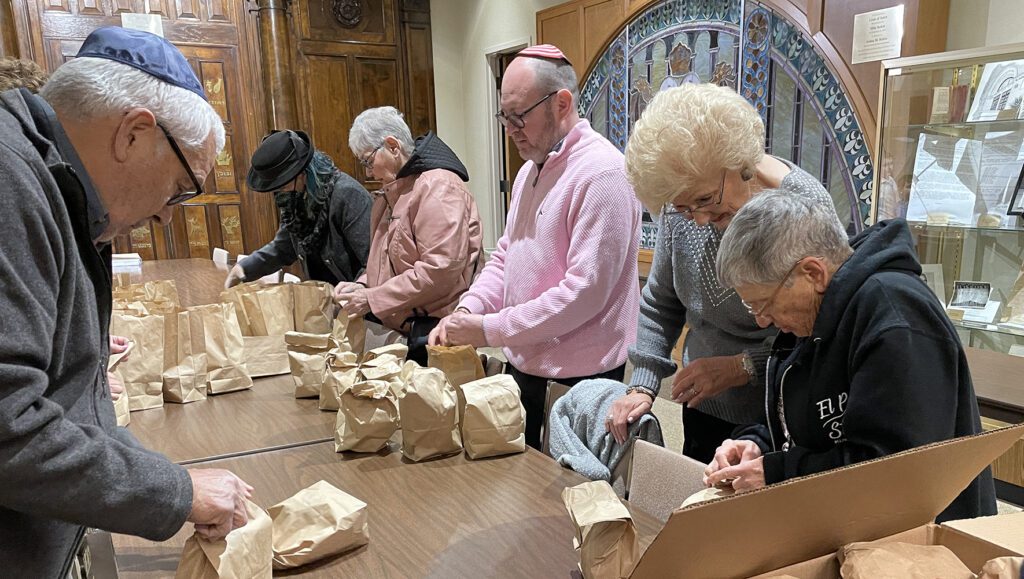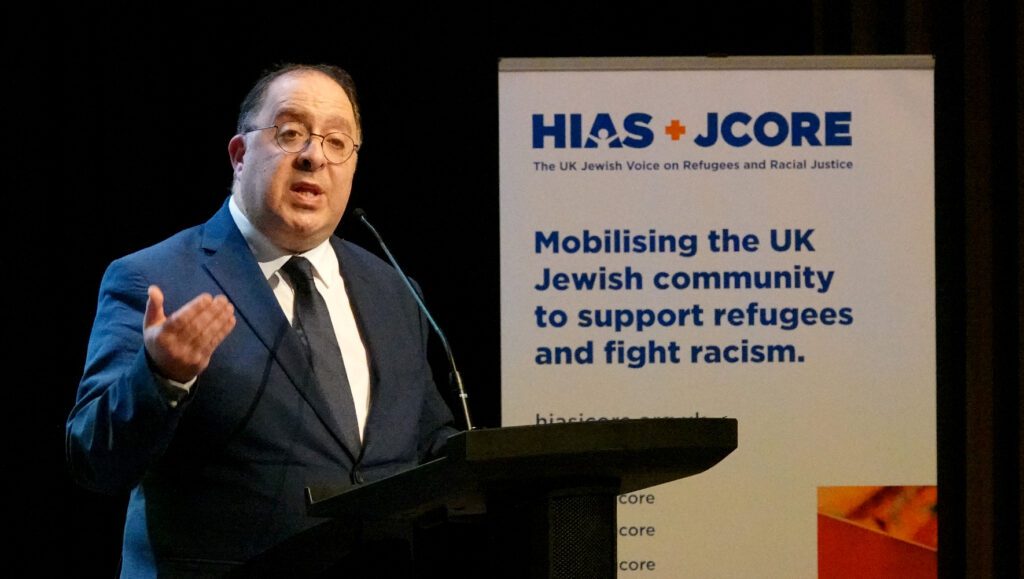
An estimated 646,000 displaced people live in the United Kingdom, many having fled there from Ukraine, Afghanistan, Iran, and Syria. Like elsewhere in Europe, responses to refuge and asylum have become increasingly prominent in political discourse. That’s despite the U.K. receiving substantially fewer asylum applicants than Germany, France, and Spain.
There are limited safe routes for refugees to reach the U.K., and legal pathways are highly restricted by both nationality and the number of people allowed. Still, many displaced people continue to seek safety in the U.K. because of their ability to speak English and having family ties to the country.
The Labour government led by Keir Starmer has promised to reform migration and asylum policy, but there is still a long way to go in helping displaced people in the U.K. Read on to learn more about the current landscape for refugees in the U.K. and how HIAS+JCORE provides support to displaced people.
What barriers do refugees face in the U.K.?
People seeking asylum in the U.K. are generally not allowed to work and have limited housing options, which leads to poverty and restricts integration — even though there is broad public support to change these policies. Current policy forces people seeking asylum into destitution, with many people receiving only £9.95 (around $13) per week. People seeking asylum also can be held indefinitely, and thousands remain in detention centers.
While there has been some movement in processing asylum applications more quickly, at the end of March 2025 there were still more than 100,000 people waiting for an initial decision on their asylum application. Nearly one-third have waited longer than a year. Meanwhile the appeals backlog has grown exponentially in the past few years, from 6,000 cases in 2022 to over 50,000 as of June 2025.
An estimated 646,000 displaced people live in the United Kingdom, many having fled there from Ukraine, Afghanistan, Iran, and Syria.
What’s forcing people into dangerous small boat crossings — and will the new asylum law help?
Not only are there very few safe routes to reach safety in the U.K., but it is not possible to claim asylum without being physically present in the country. There is also currently no visa that would allow someone to enter the U.K. for the purpose of seeking refuge. This leads some displaced people to pursue dangerous routes, such as traveling in small boats across the English Channel.
More than 21,000 displaced people have already crossed on small boats in 2025, up 56% from the same period in 2024. To address this issue, the British and French governments recently agreed to a “one-in, one-out” migration deal in which 50 people who arrive in the U.K. on small boats will be returned to France each week. In return, 50 displaced people in France — who wish to seek asylum in the U.K. but have not attempted to do so irregularly — will be provided with a safe pathway.
While the introduction of this pathway to seek asylum is a step in the right direction, new routes cannot come at the expense of anyone’s legal right to claim asylum in the U.K. The new agreement also does not tackle the main reason why so many displaced people are compelled to risk dangerous journeys across the Channel: the absence of safe and accessible alternatives.
Your support matters
What changes to refugee policy has the new government enacted in the U.K. — and what else needs to be done?
One year into the new Labour government in the U.K., there have been several positive developments for refugees. The government is scrapping the Rwanda Plan, which would have deported thousands of people seeking asylum to unsafe conditions in the African country. Measures that enabled the indefinite detention of children have also been revoked through the repeal of parts of the Illegal Migration Act 2023.
Most significantly, the government launched a trial to extend the “move-on” period — the time new refugees have to transition from government support to their own housing after receiving refugee status — from 28 to 56 days through the end of 2025. This is a vital step in preventing homelessness and destitution among refugees, while giving newcomers a fair opportunity to rebuild their lives and integrate into society.
However, the Labour government’s record on these issues is not universally positive. There is an urgent need for safe routes — with no alternatives to perilous journeys for people who wish to access their legal right to claim asylum in the U.K. Instead, the government has focused on deterrence and “smashing the gangs” of human traffickers who facilitate transit without addressing the underlying reasons why people resort to smugglers and take such dangerous journeys.
Recently, the government quietly closed both pathways of the Afghan Resettlement Program. The “ACRS” and “ARAP” schemes allowed Afghans who assisted the U.K. mission in Afghanistan and vulnerable individuals who met stated criteria to resettle in the U.K. These were some of the only pathways available — even though Afghans now make up the largest group crossing the Channel to claim asylum.
Perhaps most concerning, the government has introduced a policy denying refugees who entered the U.K. irregularly the chance to ever become citizens, even though there are very few safe routes available. This could affect 70,000 people in the U.K who will be blocked from receiving citizenship.

Deep Dive: Migration and Global Elections in 2024
Read MoreHow is HIAS+JCORE supporting displaced people in the U.K.?
HIAS+JCORE traces its roots to 1976 and works today in the U.K. to help refugees and asylum seekers flourish as a part of society, free from xenophobia and racism.
For more than 50 years, JCORE (the Jewish Council for Racial Equality) has worked for a world free of racism and hate. In more recent years, this work increasingly focused on supporting refugees and fighting the racism refugees so often experience. In 2023, HIAS+JCORE was launched combining HIAS’ work to help refugees around the world with JCORE’s commitment to fighting xenophobia and racism.
HIAS+JCORE supports displaced people through three strategies:
- Advocating. We lobby politicians and policy makers, sharing our Jewish-values led vision for a fairer, more welcoming asylum system.
- Mobilizing. We work across the Jewish community, driving engagement with our core issues. We educate, facilitate volunteering opportunities, and encourage activism.
- Supporting. We work directly with refugees and asylum seekers, overcoming challenges and empowering them to thrive.
Learn more about HIAS+JCORE’s work at hiasjcore.org.


